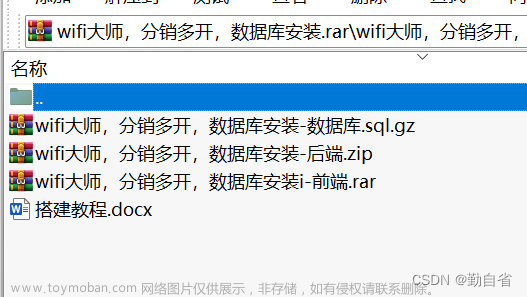// SPDX-License-Identifier: MIT
pragma solidity ^0.8.0;
abstract contract Context {
function _msgSender() internal view virtual returns (address) {
return msg.sender;
}
function _msgData() internal view virtual returns (bytes calldata) {
return msg.data;
}
}
abstract contract Ownable is Context {
address private _owner;
event OwnershipTransferred(address indexed previousOwner, address indexed newOwner);
constructor() {
_transferOwnership(_msgSender());
}
function owner() public view virtual returns (address) {
return _owner;
}
modifier onlyOwner() {
require(owner() == _msgSender(), "Ownable: caller is not the owner");
_;
}
function renounceOwnership() public virtual onlyOwner {
_transferOwnership(address(0));
}
function transferOwnership(address newOwner) public virtual onlyOwner {
require(newOwner != address(0), "Ownable: new owner is the zero address");
_transferOwnership(newOwner);
}
function _transferOwnership(address newOwner) internal virtual {
address oldOwner = _owner;
_owner = newOwner;
emit OwnershipTransferred(oldOwner, newOwner);
}
}
interface IERC20 {
function totalSupply() external view returns (uint256);
function balanceOf(address account) external view returns (uint256);
function transfer(address recipient, uint256 amount) external returns (bool);
function allowance(address owner, address spender) external view returns (uint256);
function approve(address spender, uint256 amount) external returns (bool);
function transferFrom(
address sender,
address recipient,
uint256 amount
) external returns (bool);
event Transfer(address indexed from, address indexed to, uint256 value);
event Approval(address indexed owner, address indexed spender, uint256 value);
}
interface IERC20Metadata is IERC20 {
function name() external view returns (string memory);
function symbol() external view returns (string memory);
function decimals() external view returns (uint8);
}
library SafeMath {
function add(uint256 a, uint256 b) internal pure returns (uint256) {
uint256 c = a + b;
require(c >= a, "SafeMath: addition overflow");
return c;
}
function sub(uint256 a, uint256 b) internal pure returns (uint256) {
return sub(a, b, "SafeMath: subtraction overflow");
}
function sub(uint256 a, uint256 b, string memory errorMessage) internal pure returns (uint256) {
require(b <= a, errorMessage);
uint256 c = a - b;
return c;
}
function mul(uint256 a, uint256 b) internal pure returns (uint256) {
// NanFeng-TG @NFKJ991
// Token development, project official website development, Dapp development.
if (a == 0) {
return 0;
}
uint256 c = a * b;
require(c / a == b, "SafeMath: multiplication overflow");
return c;
}
function div(uint256 a, uint256 b) internal pure returns (uint256) {
return div(a, b, "SafeMath: division by zero");
}
function div(uint256 a, uint256 b, string memory errorMessage) internal pure returns (uint256) {
require(b > 0, errorMessage);
uint256 c = a / b;
// assert(a == b * c + a % b); // There is no case in which this doesn't hold
return c;
}
function mod(uint256 a, uint256 b) internal pure returns (uint256) {
return mod(a, b, "SafeMath: modulo by zero");
}
function mod(uint256 a, uint256 b, string memory errorMessage) internal pure returns (uint256) {
require(b != 0, errorMessage);
return a % b;
}
}
library SafeMathInt {
int256 private constant MIN_INT256 = int256(1) << 255;
int256 private constant MAX_INT256 = ~(int256(1) << 255);
/**
* @dev Multiplies two int256 variables and fails on overflow.
*/
function mul(int256 a, int256 b) internal pure returns (int256) {
int256 c = a * b;
// Detect overflow when multiplying MIN_INT256 with -1
require(c != MIN_INT256 || (a & MIN_INT256) != (b & MIN_INT256));
require((b == 0) || (c / b == a));
return c;
}
/**
* @dev Division of two int256 variables and fails on overflow.
*/
function div(int256 a, int256 b) internal pure returns (int256) {
// Prevent overflow when dividing MIN_INT256 by -1
require(b != -1 || a != MIN_INT256);
// Solidity already throws when dividing by 0.
return a / b;
}
/**
* @dev Subtracts two int256 variables and fails on overflow.
*/
function sub(int256 a, int256 b) internal pure returns (int256) {
int256 c = a - b;
require((b >= 0 && c <= a) || (b < 0 && c > a));
return c;
}
/**
* @dev Adds two int256 variables and fails on overflow.
*/
function add(int256 a, int256 b) internal pure returns (int256) {
int256 c = a + b;
require((b >= 0 && c >= a) || (b < 0 && c < a));
return c;
}
/**
* @dev Converts to absolute value, and fails on overflow.
*/
function abs(int256 a) internal pure returns (int256) {
require(a != MIN_INT256);
return a < 0 ? -a : a;
}
function toUint256Safe(int256 a) internal pure returns (uint256) {
require(a >= 0);
return uint256(a);
}
}
library SafeMathUint {
function toInt256Safe(uint256 a) internal pure returns (int256) {
int256 b = int256(a);
require(b >= 0);
return b;
}
}
library Clones {
/**
* @dev Deploys and returns the address of a clone that mimics the behaviour of `implementation`.
*
* This function uses the create opcode, which should never revert.
*/
function clone(address implementation) internal returns (address instance) {
assembly {
let ptr := mload(0x40)
mstore(ptr, 0x3d602d80600a3d3981f3363d3d373d3d3d363d73000000000000000000000000)
mstore(add(ptr, 0x14), shl(0x60, implementation))
mstore(add(ptr, 0x28), 0x5af43d82803e903d91602b57fd5bf30000000000000000000000000000000000)
instance := create(0, ptr, 0x37)
}
require(instance != address(0), "ERC1167: create failed");
}
/**
* @dev Deploys and returns the address of a clone that mimics the behaviour of `implementation`.
*
* This function uses the create2 opcode and a `salt` to deterministically deploy
* the clone. Using the same `implementation` and `salt` multiple time will revert, since
* the clones cannot be deployed twice at the same address.
*/
function cloneDeterministic(address implementation, bytes32 salt) internal returns (address instance) {
assembly {
let ptr := mload(0x40)
mstore(ptr, 0x3d602d80600a3d3981f3363d3d373d3d3d363d73000000000000000000000000)
mstore(add(ptr, 0x14), shl(0x60, implementation))
mstore(add(ptr, 0x28), 0x5af43d82803e903d91602b57fd5bf30000000000000000000000000000000000)
instance := create2(0, ptr, 0x37, salt)
}
require(instance != address(0), "ERC1167: create2 failed");
}
/**
* @dev Computes the address of a clone deployed using {Clones-cloneDeterministic}.
*/
function predictDeterministicAddress(
address implementation,
bytes32 salt,
address deployer
) internal pure returns (address predicted) {
assembly {
let ptr := mload(0x40)
mstore(ptr, 0x3d602d80600a3d3981f3363d3d373d3d3d363d73000000000000000000000000)
mstore(add(ptr, 0x14), shl(0x60, implementation))
mstore(add(ptr, 0x28), 0x5af43d82803e903d91602b57fd5bf3ff00000000000000000000000000000000)
mstore(add(ptr, 0x38), shl(0x60, deployer))
mstore(add(ptr, 0x4c), salt)
mstore(add(ptr, 0x6c), keccak256(ptr, 0x37))
predicted := keccak256(add(ptr, 0x37), 0x55)
}
}
/**
* @dev Computes the address of a clone deployed using {Clones-cloneDeterministic}.
*/
function predictDeterministicAddress(address implementation, bytes32 salt)
internal
view
returns (address predicted)
{
return predictDeterministicAddress(implementation, salt, address(this));
}
}
contract ERC20 is Context, IERC20, IERC20Metadata {
using SafeMath for uint256;
mapping(address => uint256) private _balances;
mapping(address => mapping(address => uint256)) private _allowances;
uint256 private _totalSupply;
string private _name;
string private _symbol;
文章来源地址https://www.toymoban.com/news/detail-608158.html
文章来源:https://www.toymoban.com/news/detail-608158.html
到了这里,关于源码:全能分红(任意币种),附带回流、销毁、营销的文章就介绍完了。如果您还想了解更多内容,请在右上角搜索TOY模板网以前的文章或继续浏览下面的相关文章,希望大家以后多多支持TOY模板网!










